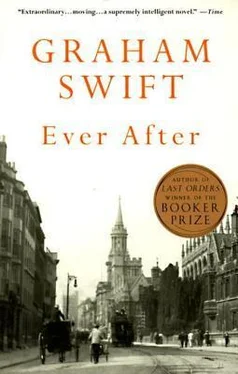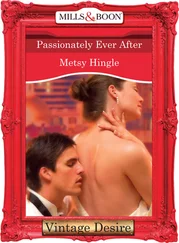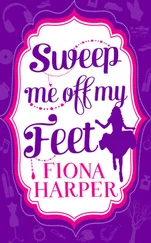There was first the fact that I had been Ruth’s husband. This, along with Sam’s money, was, I soon realised, my chief asset and counted for a good deal of initial unction — no, let me say genuine cordiality. Even envy. However much the academic world likes to maintain its persona of high-minded aloofness, it is not insusceptible to a little glamour — even the vicarious, refracted glamour that belongs to the husband of an actress cut off at the peak of her success. The contemplative life secretly yearns for the active life — or, in this case, the acting life. I know this, having once been, myself, the dowdy moth, meant for some inconspicuous cranny of scholarship, yet drawn to flutter helplessly round the flame of a show girl (which is what Ruth then could legitimately have been called). I was lucky. My wings did not get burnt. They even acquired, in the fullness of time, a sort of borrowed iridescence, which seemed to linger on (I suppose it is all gone now) after her death.
Glamour, I know, having lived with Ruth, is only a kind of dressing, a trick, a concoction, the promise of something else. (Beauty, love, happiness …) It is as desirable and as meaningless as money. Yet these grave and erudite dons, these seekers after knowledge, they would trade not a little of their learning and wisdom for just a touch of glamour.
(Look at Potter. He does these absurd radio programmes. His big moment came when at last he progressed to TV. He offers watered-down or souped-up scholarship for the masses. Potter’s potted history. Talks any old bilge. Even I can tell this. We will see him soon hosting a quiz show. He is, by all accounts, a genuinely accomplished historian. Yet he feels obliged to prostitute himself, for the sake of a little dubious limelight, by turning himself into something he is not.)
I was thus regarded when I first came here, not least by Potter, as something of an intriguing novelty. Something that might add a little pep and lustre to the otherwise sober atmosphere of academic life. Fellows’ wives — and Fellows too, with a touch of resentment — itched for the moment when they could ask me what was it like, what was it really like, to be married to her? What was she really like? No one was interested in my (admittedly unsensational) thoughts on Renaissance prosody.
I was under no illusions. Iridescence lingered on, at least in the eyes of beholders. But I was fully aware (what was true of my former self is even truer of the thing I am now) that I possess no intrinsic magnetism. What worldly adroitness I can muster, what chutzpah and charm, what spring in my step (I suffered in my younger days from flat feet), I owe to Ruth. I was not slow to detect, amidst all the actual or implicit interrogation, another, unspoken question (I was used to it): Could I really have been the husband of Ruth Vaughan? What — him?
But here the pathos factor came into play. I was not only the former husband of a well-known actress. I was the former husband of a well-known actress who had died in circumstances publicly reported and lamented and officially labelled (is there no other word?) “tragic.” I was no ordinary widower. A school of thought which held that I should be treated gently — and therefore girded around with a sort of halo of knowing looks and evasions — was largely overruled by the school of thought which held that now was the very time (five months after the event) when I should be encouraged to “talk”—an excuse for fêting me liberally (if you can fête the bereaved) and milking me for the “inside story” I was supposedly bursting to tell.
And in all this, all this being the centre of dubious attention, all I wanted was to be the opposite thing, to be the dowdy, forgotten moth again. Yes, Sam was right — devious revenge or not — I accept that he was right. Perhaps I could never have coped. How much longer could I have gone on, holed up in that Kensington flat, in those roomfuls of memories, a redundant theatrical manager (my sole client had died on me), besieged by the commiserations of stage and screen, by agents, lawyers, morbid hangers-on and prurient journalists. I needed shelter, I needed sanctuary.
The contemplative life.
My period of spurious celebrity here lasted some three months. It carried me through to my mother’s death, which did not have the effect of extending the prerogatives of grief. Rather, it was about that time — summer turning to autumn and a new academic year looming — that my special privileges fell away from me like some ineffective disguise, and I began to be scrutinized for my real credentials. It was then that the general view took hold that my academic qualifications, though not entirely absent, were way below the college standard, and that, Ellison Fellowship or no Ellison Fellowship, I was an impostor.
And it was then that the Pearce manuscripts, which my mother’s death released into my hands, came — in more than one sense — to my rescue. I should explain that the terms of the Ellison Fellowship are generously vague. The incumbent, with all the resources of the College and the University at his disposal, is at liberty to pursue whatever line of scholarly research he wishes. The question of the duties he owes in return is left largely a matter of unwritten agreement. I had already undertaken — primarily to give myself something to do, but also to show willing and spare the College embarrassment — some supervision of students. After a gap of fifteen years, I found myself once more speaking to these strange, young — even younger now — people. (They too blurted out their little condolences.) I flattered myself that my teaching was not ineffective, though how much this depended on my students’, like others’, suspending their usual rigorousness of appraisal, I don’t know. But now I was to understand that because of certain “feelings” in the Faculty (I will come to this) the continuation of my tutorial services was under review.
What was really under review was not my teaching but my whole contribution to scholarship. What exactly was the line of research for which College and Faculty were providing me with such superlative amenities? It looked very much to them — it looks the same to me too (Sam, you bastard!) — that my line of research, apart from a little desultory and random browsing, was doing nothing at all.
But then, with my mother’s death, there was Matthew Pearce. There were Matthew Pearce’s notebooks and his last letter to his wife, Elizabeth, which had survived miraculously Uncle Ratty’s depredations and my mother’s successive “clear-outs” and incinerations, not to mention Matthew’s consignment to the murky recesses (ah, but it seems I am heading that way too) of family failure and disgrace.
It is quite possible, entirely plausible, in fact, that she never knew she had them. There was more “junk” than you would credit, for a woman given to severing herself from the past, in those two old, rotting leather suitcases — one with its brass locks completely seized up. I took it upon myself to open them. Sam seemed unduly angered that I should have done so — I can understand this now — but he calmed down when the contents were made known. In fact, the occasion seemed to mark the end of the dazed, quarrelsome mood into which my mother’s death had thrown him. “I’m sorry I bit your head off, pal.” I didn’t show him the photograph of Uncle Jim. But I showed him the notebooks, which he quickly flipped through, then returned to me with a shrug. And I showed him the cutting of my mother’s singing début. “No, no, you keep it, kid. I’m sorry I yelled at you. You keep it all.” There was the old, avuncular look in his eye.
But my mother had certainly known about Matthew Pearce. And so had I — from an early age — if only because of the clock: the little mantel clock with a rosewood case that was made in 1845 by Matthew’s own father, as a present for his son and his bride, and which has served as a wedding gift over successive generations ever since. Ruth and I received it in 1959. Since our wedding was an impromptu, unannounced affair, we received it rather late in the day. Nonetheless, my mother felt it proper we should have it. It was one of few heirlooms she cherished and did her duty by. It used to tick and chime away, amongst relics — long since discarded — of the “India days” in our old home in Berkshire. I don’t know what my father made of it. Then it kept watch over Ruth and myself, first on our various mantelpieces in London, then in the cottage we bought in Sussex in 1975 and made increasing use of, Ruth’s schedule permitting, up until her death. Now it sits here — that is, on the sturdy mantelpiece of my august Fellow’s chambers — one of a little nucleus of objects I brought with me from the flat. I sold the cottage over a year ago. The cottage, of course, was where Ruth died.
Читать дальше












